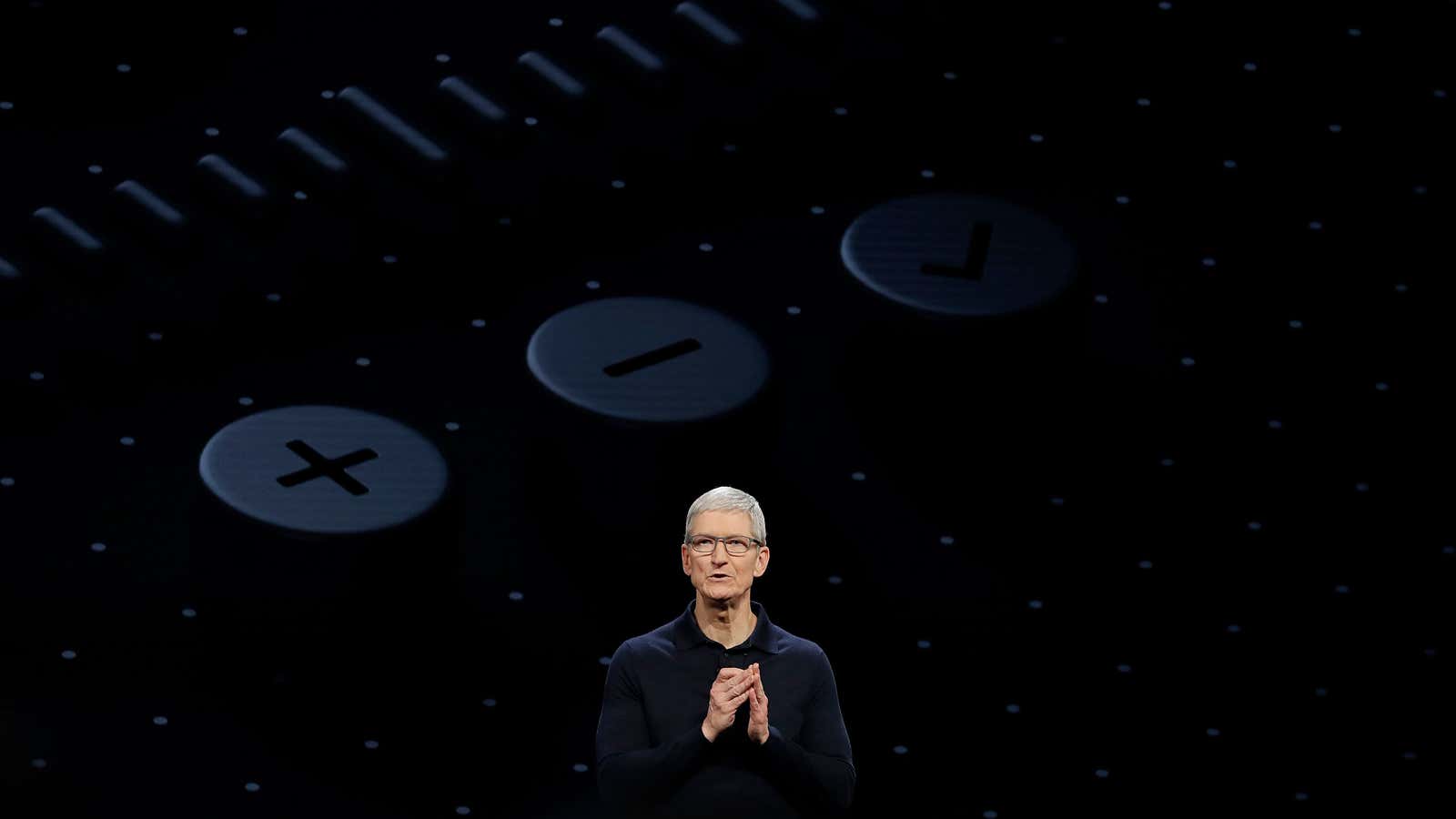Apple is having a bit of a rough go lately.
During its quarterly earnings report earlier this month, the company offered lower-than-expected guidance for the current holiday quarter, and announced that it would no longer break out how many units of its products it ships. Wall Street was unhappy with the news, and Apple’s market valuation fell below $1 trillion before the call was even over, with the company’s stock price dropping by about 8%. It recovered slightly the next day, but rumors that the company’s latest smartphone, the iPhone Xr, isn’t selling as well as hoped, have compounded Wall Street’s fears over Apple, as the company’s stock price has continued to slide over the course of the month.
And this week, the US Supreme Court will hear a case, Apple v. Pepper, that could threaten to derail one of its strongest business lines.
The company’s services business, which includes commissions it takes on app sales, as well as subscriptions and other digital services it offers, has become an important and reliable source of revenue in recent years, eclipsing all of its other businesses (apart from the iPhone), and growing to the size of a Fortune 100 company in its own right. In the last quarter alone, Apple generated nearly $10 billion in services revenue.
The class-action suit, which has been raging for nearly a decade, involves the App Store for mobile devices. Apple charges developers a 30% commission on apps they want to sell in the App Store, and that fee generally gets passed on to the consumer. The App Store is the only way to download apps onto an iPhone, iPad, or iPod Touch for most consumers that won’t void their warranty. The Supreme Court is now considering whether users can sue Apple for breaking federal antitrust law, considering the App Store is effectively a monopoly on the iPhone app marketplace. Apple argues only developers, the ones who set the prices for their own apps, could bring such a lawsuit. If the US’s highest court decides that the lawsuit can be brought, Apple could potentially be liable for massive damages from users, and theoretically be unable to charge its commission, and have to let users download apps from other places, in the future.
Apple’s woes may not stop there. US president Donald Trump suggested Nov. 26 that he’s considering a 10% tariff on devices, like the iPhone and MacBooks, that are made in China. “I mean, I can make it 10% and people could stand that very easily,” Trump told The Wall Street Journal (paywall). “What I’d advise is for [Apple and other manufacturers] to build factories in the United States and to make the product here, and they have a lot of other alternatives.”
The news spooked investors, as Apple’s stock price opened today (Nov. 27) about 2% below its close last night. Shares now trade at around $174, a roughly 25% drop from their high in early October. Its market capitalization now stands at about $826 billion, far below its $1.1 trillion peak earlier this year.
Trump’s comments might help explain why Apple CEO Cook was in soggy western Idaho today with the president’s daughter and advisor, Ivanka Trump, to see how a local school district “uses technology.”
But no amount of school-trip glad-handing will likely sway the Supreme Court’s decision, or consumers balking at the increasingly high prices of iPhones.
